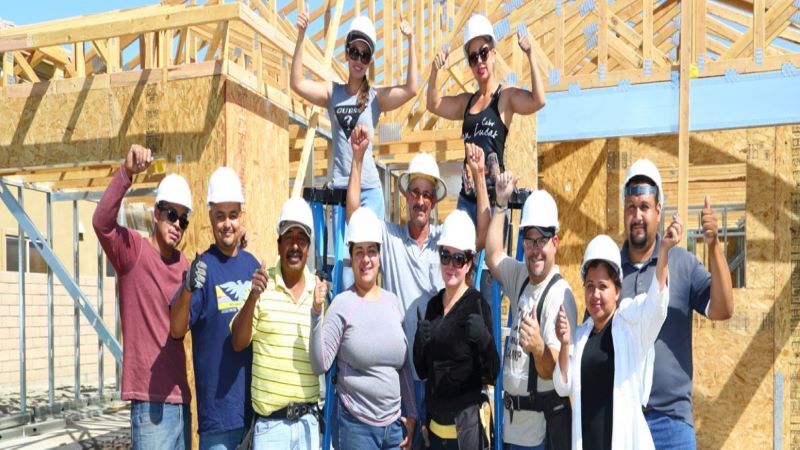The city of Palm Desert has donated city property to the Coachella Valley Housing Coalition (CVHC), which plans to turn the empty lot into 14 houses for those in need, News Channel 3 reported.
“We’re going to convert this into what we call the Palm Desert Merle Street Urban Self-Help Program," CVHC Executive Director Pedro Rodriguez told News Channel 3. "This is going to give low-income families an opportunity to become homeowners."
According to News Channel 3, Palm Desert donated the property on Merle Street to assist families and individuals impacted by the affordable housing crisis. This is part of plan under discussion since 2017.
According to the CVHC official website, this project falls under their self-help housing program, which requires that families agree to help in the construction of homes for each other with technical guidance from a competent construction supervisor. For the Palm Desert project, each household/family unit must be able to contribute a minimum of 35 hours a week toward the construction of their home for approximately one year.
Additionally, to qualify for the program, at least one member of the household must be currently employed within Palm Desert, must have stable and dependable income, demonstrate a good credit history and be a first-time homebuyer. The program defines fist-time homebuyer as someone who has not owned a house within the last three years.
For those interested, the CVHC still has spots open for the Palm Desert program and is accepting applications. Application information can be found on the official website.
The CVHC is dedicated to serving families and individuals who are motivated to own a home but unable to afford traditional housing through the real estate market. According to its website, the CVHC has built over 4,000 multi- and single-family residences, making it the largest developer of low-incoming housing in Riverside County and one of the biggest residential developers in the Coachella Valley. It also has constructed or acquired 2,853 rental units located in 39 developments, including a 178-bed migrant farm worker community, according to the CVHC website.

